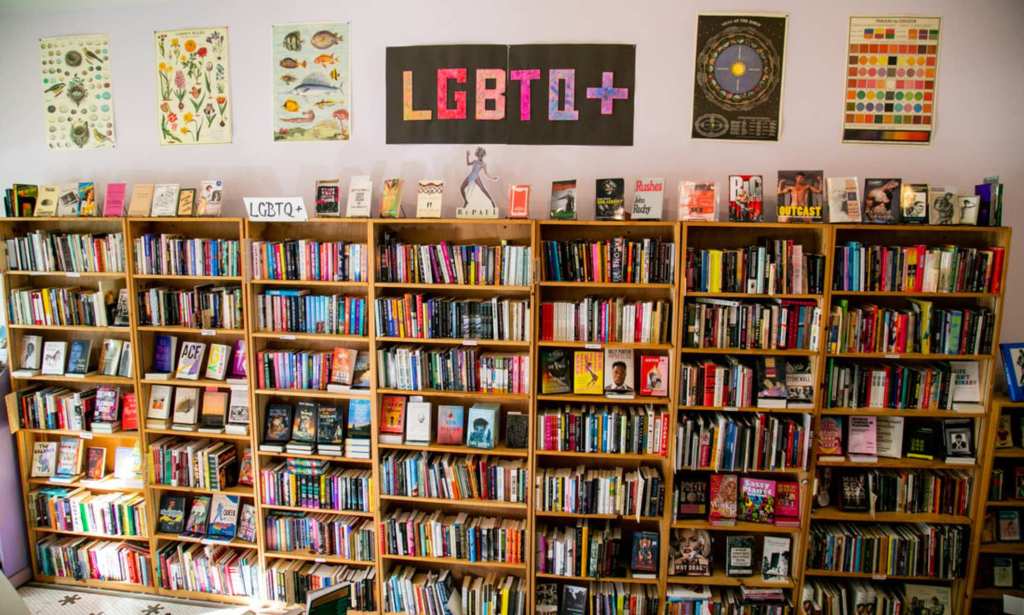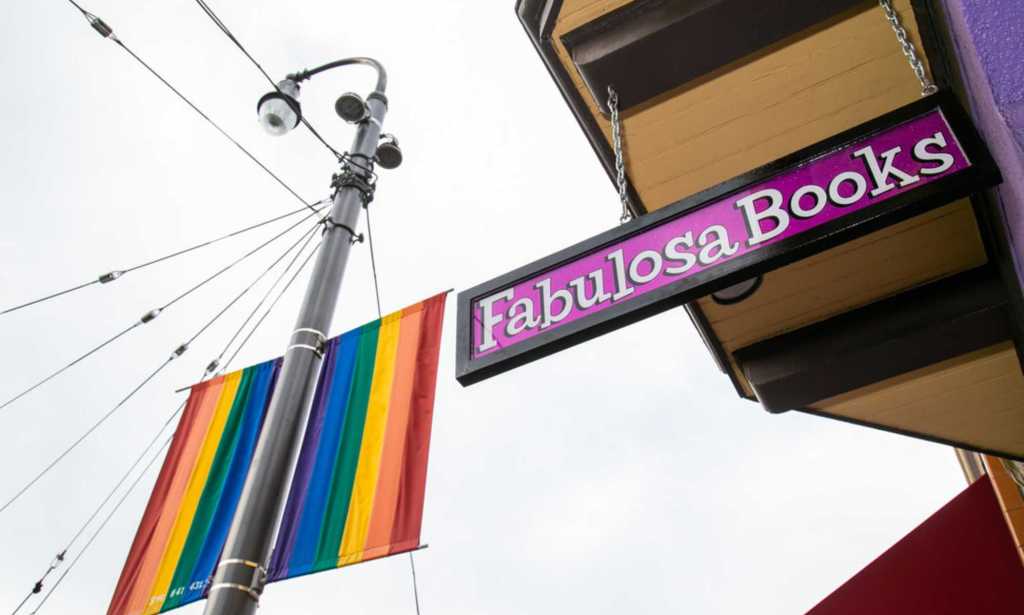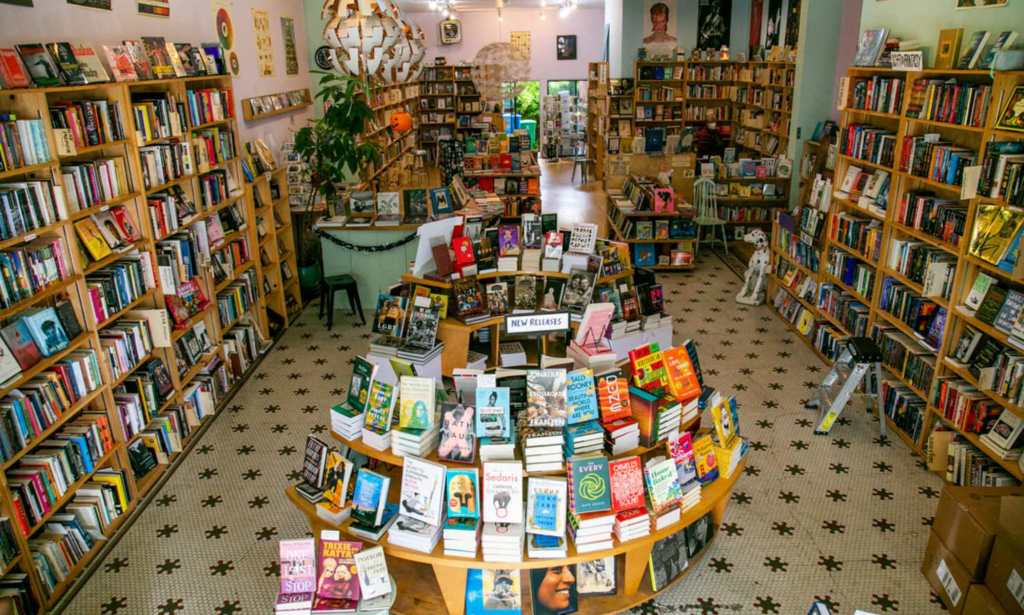How this bookstore is fighting back against LGBTQ book bans across the US: ‘Stories save lives’

Fabulosa Books in San Francisco is getting queer books into the hands of LGBTQ+ folks (Canva)
Fabulosa Books in San Francisco is getting queer books into the hands of LGBTQ+ folks (Canva)
When people walk into Fabulosa Books in San Francisco’s famous Castro district their jaws drop, staff say, because they are surprised – and happy – to see so many queer books on display.
“We have what I call the ‘Big Gay Wall’ and it’s all LGBTQ+ content. We have big glittery letters that say L–G–B–T–Q–+,” staff member Becka – who leads the store’s Books Not Bans programme – tells PinkNews, emphasising each letter.
“A lot of bookstores these days carry queer books but they’re sort of mixed in, and we want people to really feel seen, welcome and represented. Stories save lives. This is my mantra. We are trying to serve the community in a meaningful sense.”
This is echoed by bookshop proprietor, Alvin, who says customers come from across the US and all over the world, where certain books have been censored, and places where they don’t even have a local bookstore any more.
“They are delighted to have a bookstore where LGBTQ+ books are front and centre,” he said.

The shocked reaction of customers is often down to the rise in LGBTQ+ book bans sweeping towns, cities and states throughout the US.
Described as a “mounting crisis” by PEN America, a not-for-profit organisation whose goal is to raise awareness for the protection of free expression, thousands of diverse works have already been removed from schools and libraries – sometimes being ripped from the hands of the young people who need them most.
Book bans are by no means a new concept and have been used for hundreds of years to restrict and censor the public’s access to certain types of information and content.
Huge public book burnings were common in Nazi Germany, particularly in the 1930s. In the UK, D.H. Lawrence’s novel Lady Chatterley’s Lover was subjected to an obscenity trial at the Old Bailey, in London, in 1960 – the director of public prosecution and the police had already burnt copies of his earlier work The Rainbow and intercepted his post to seize his poems Pansies – and the deposition scene in Shakespeare’s Richard II was censored.
In the US in recent years, however, there has been an unparalleled increase in moves to prevent access to works featuring LGBTQ+ themes and characters. From July 2021 to June 2023, PEN America’s Index of School Book Bans found 5,894 instances of book bans, across 41 states and 247 public school districts. The “offending” works overwhelmingly included those with LGBTQ+ characters and discussions of sexual orientation, gender identity and sexual experiences.
At Fabulosa Books, they see the real-life effects of these bans.
“We get adults from Texas, Tennessee, Florida, Georgia and even rural California who come in and they’re bowled over,” Becka said.
“It’s very affirming for us, but it’s also sad. Everyone should have access. It should be so easy. You should be able to stumble on these books at the library and every town should have a bookstore that just carries them in a designated section.”

In particular, Becka recalled one time when a gay 16-year-old boy from Ohio came into the shop – a moment she will “remember to the end of my days”, she admitted.
“He looked at the wall and he looked at me and he goes: ‘Are all these books gay?’ and I go, ‘Yeah’. He looks at the wall and his jaw dropped.” The teenager proceeded to ask Becka for a hug and spent hours sitting in the shop, touching the books and thumbing through dozens of them.
“This was a core moment for his life. It was incredible to see and it grounded me in this work we do, it was so affirmative,” she said.
The store’s Books Not Bans programme sends boxes of LGBTQ+ books to queer organisations in conservative areas, who work directly with the community, giving access to those who want to read the works.
As a city, San Francisco “takes a civic pride in not being part of the banning culture”, Alvin said, and when the bans started to pick up in intensity, Fabulosa Book staff and customers were “desperate” to do something to help.
Since it was launched last May, the programme has sent boxes to LGBTQ+ centres in states such as Tennessee, Oklahoma, Alabama and South Carolina.
The importance of the programme amid waves of anti-LGBTQ+ rhetoric is palpable, especially following the recent death of Two Spirit/gender-non-conforming teen Nex Benedict, in Oklahoma.
“LGBTQ+ folks in much of the country face a very difficult daily reality and are in a very real sense, not safe, Becka says.
“It’s dangerous for young people. I think constantly about the youth suicide rate among LGBTQ+ folks who are having to live with this daily reality, this barrage of messages. No matter how accepting their family is, there’s a greater context where they are. It’s not just a matter of not being accepted, they are not safe.
“They’re facing danger every single day just by existing and they need to get through, they need to survive, and these stories not only can instil within them a sense of resilience and hope but if people around them also read them, they will be more loved, understood and accepted.
“I see this as a matter of life and death for so many members of the community, not just youth.”

Alvin says customers and organisations who receive the boxes of books are so grateful to have “people backing them up” and know that, even if everything in a 600-mile radius of them appears queerphobic, they have Fabulosa Books in San Francisco in their corner.
“It’s heart-warming that books matter to them so much because there is queer TV and movies now in a way there never was before, but somehow the books make a special impact. That speaks to the ability of literature to touch people in a way that some of the flashier media can’t,” he adds.
“I’m heartened that that the youth are so into reading, which has not always been the case.”

